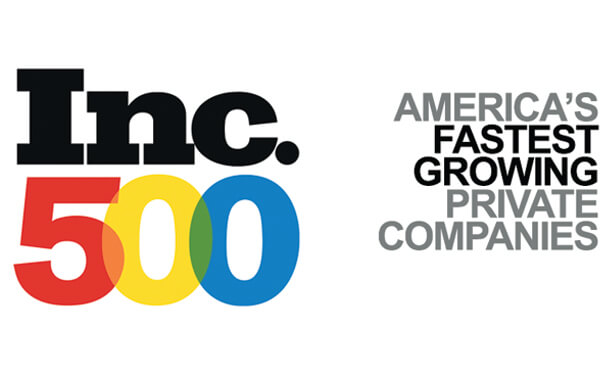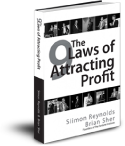
Great advice from the 2 founders of Google.
This week I came across a very interesting document.
It’s a summary the two founders of Google (Larry Page and Sergey Brin) made a few years after starting Google.
It’s got a lot of excellent advice on how to grow a great business.
What’s particularly interesting about their summary of thoughts, is that every few years they review and update them.
So a lot of thinking has gone into this short document.
As you’ll see below, not every point they make is relevant for your industry, some are directly related to online search business.
But most of what they say applies to any company that aspires to achieve excellence.
In my view, points 1, 2, 3 and 10 are particularly powerful for all of us leading companies.
Enjoy….
Ten things we know to be true
We first wrote these “10 things” when Google was just a few years old. From time to time we revisit this list to see if it still holds true. We hope it does—and you can hold us to that.
1. Focus on the user and all else will follow.
Since the beginning, we’ve focused on providing the best user experience possible. Whether we’re designing a new Internet browser or a new tweak to the look of the homepage, we take great care to ensure that they will ultimately serve you, rather than our own internal goal or bottom line. Our homepage interface is clear and simple, and pages load instantly. Placement in search results is never sold to anyone, and advertising is not only clearly marked as such, it offers relevant content and is not distracting. And when we build new tools and applications, we believe they should work so well you don’t have to consider how they might have been designed differently.
2. It’s best to do one thing really, really well.
We do search. With one of the world’s largest research groups focused exclusively on solving search problems, we know what we do well, and how we could do it better. Through continued iteration on difficult problems, we’ve been able to solve complex issues and provide continuous improvements to a service that already makes finding information a fast and seamless experience for millions of people. Our dedication to improving search helps us apply what we’ve learned to new products, like Gmail and Google Maps. Our hope is to bring the power of search to previously unexplored areas, and to help people access and use even more of the ever-expanding information in their lives.
3. Fast is better than slow.
We know your time is valuable, so when you’re seeking an answer on the web you want it right away–and we aim to please. We may be the only people in the world who can say our goal is to have people leave our website as quickly as possible. By shaving excess bits and bytes from our pages and increasing the efficiency of our serving environment, we’ve broken our own speed records many times over, so that the average response time on a search result is a fraction of a second. We keep speed in mind with each new product we release, whether it’s a mobile application or Google Chrome, a browser designed to be fast enough for the modern web. And we continue to work on making it all go even faster.
4. Democracy on the web works.
Google search works because it relies on the millions of individuals posting links on websites to help determine which other sites offer content of value. We assess the importance of every web page using more than 200 signals and a variety of techniques, including our patented PageRank™ algorithm, which analyzes which sites have been “voted” to be the best sources of information by other pages across the web. As the web gets bigger, this approach actually improves, as each new site is another point of information and another vote to be counted. In the same vein, we are active in open source software development, where innovation takes place through the collective effort of many programmers.
5. You don’t need to be at your desk to need an answer.
The world is increasingly mobile: people want access to information wherever they are, whenever they need it. We’re pioneering new technologies and offering new solutions for mobile services that help people all over the globe to do any number of tasks on their phone, from checking email and calendar events to watching videos, not to mention the several different ways to access Google search on a phone. In addition, we’re hoping to fuel greater innovation for mobile users everywhere with Android, a free, open source mobile platform. Android brings the openness that shaped the Internet to the mobile world. Not only does Android benefit consumers, who have more choice and innovative new mobile experiences, but it opens up revenue opportunities for carriers, manufacturers and developers.
6. You can make money without doing evil.
Google is a business. The revenue we generate is derived from offering search technology to companies and from the sale of advertising displayed on our site and on other sites across the web. Hundreds of thousands of advertisers worldwide use AdWords to promote their products; hundreds of thousands of publishers take advantage of our AdSense program to deliver ads relevant to their site content. To ensure that we’re ultimately serving all our users (whether they are advertisers or not), we have a set of guiding principles for our advertising programs and practices:
We don’t allow ads to be displayed on our results pages unless they are relevant where they are shown. And we firmly believe that ads can provide useful information if, and only if, they are relevant to what you wish to find–so it’s possible that certain searches won’t lead to any ads at all.
We believe that advertising can be effective without being flashy. We don’t accept pop–up advertising, which interferes with your ability to see the content you’ve requested. We’ve found that text ads that are relevant to the person reading them draw much higher click through rates than ads appearing randomly. Any advertiser, whether small or large, can take advantage of this highly targeted medium.
Advertising on Google is always clearly identified as a “Sponsored Link,” so it does not compromise the integrity of our search results. We never manipulate rankings to put our partners higher in our search results and no one can buy better PageRank. Our users trust our objectivity and no short-term gain could ever justify breaching that trust.
7. There’s always more information out there.
Once we’d indexed more of the HTML pages on the Internet than any other search service, our engineers turned their attention to information that was not as readily accessible. Sometimes it was just a matter of integrating new databases into search, such as adding a phone number and address lookup and a business directory. Other efforts required a bit more creativity, like adding the ability to search news archives, patents, academic journals, billions of images and millions of books. And our researchers continue looking into ways to bring all the world’s information to people seeking answers.
8. The need for information crosses all borders.
Our company was founded in California, but our mission is to facilitate access to information for the entire world, and in every language. To that end, we have offices in more than 60 countries, maintain more than 180 Internet domains, and serve more than half of our results to people living outside the United States. We offer Google’s search interface in more than 130 languages, offer people the ability to restrict results to content written in their own language, and aim to provide the rest of our applications and products in as many languages and accessible formats as possible. Using our translation tools, people can discover content written on the other side of the world in languages they don’t speak. With these tools and the help of volunteer translators, we have been able to greatly improve both the variety and quality of services we can offer in even the most far–flung corners of the globe.
9. You can be serious without a suit.
Our founders built Google around the idea that work should be challenging, and the challenge should be fun. We believe that great, creative things are more likely to happen with the right company culture–and that doesn’t just mean lava lamps and rubber balls. There is an emphasis on team achievements and pride in individual accomplishments that contribute to our overall success. We put great stock in our employees–energetic, passionate people from diverse backgrounds with creative approaches to work, play and life. Our atmosphere may be casual, but as new ideas emerge in a café line, at a team meeting or at the gym, they are traded, tested and put into practice with dizzying speed–and they may be the launch pad for a new project destined for worldwide use.
10. Great just isn’t good enough.
We see being great at something as a starting point, not an endpoint. We set ourselves goals we know we can’t reach yet, because we know that by stretching to meet them we can get further than we expected. Through innovation and iteration, we aim to take things that work well and improve upon them in unexpected ways. For example, when one of our engineers saw that search worked well for properly spelled words, he wondered about how it handled typos. That led him to create an intuitive and more helpful spell checker.
Even if you don’t know exactly what you’re looking for, finding an answer on the web is our problem, not yours. We try to anticipate needs not yet articulated by our global audience, and meet them with products and services that set new standards. When we launched Gmail, it had more storage space than any email service available. In retrospect offering that seems obvious–but that’s because now we have new standards for email storage. Those are the kinds of changes we seek to make, and we’re always looking for new places where we can make a difference. Ultimately, our constant dissatisfaction with the way things are becomes the driving force behind everything we do.













